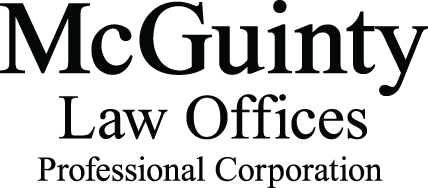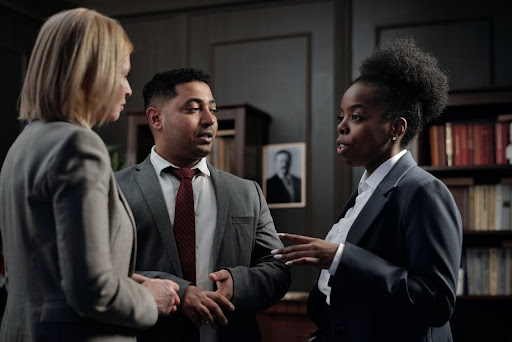
Personal Injury Lawyer Ottawa | Personal Injury Law Firm
The Role of a Personal Injury Lawyer in Ottawa
A personal injury lawyer represents clients who have claimed that their physical or psychological injuries were caused by another person, business, or organization’s negligence or carelessness.
Personal Injury Is Tort Law
Tort law is a specialty of personal injury lawyers. This includes private or civil wrongs or injuries, such as defamation and lawsuits for breach of contract in bad faith. Tort law’s primary aim is to make the injured person whole again while discouraging others from committing the same crime.
Personal injury lawyers assist plaintiffs in obtaining compensation for their losses, including lost earning capacity due to inability to work, pain and suffering, reasonable medical expenses, both present and anticipated, emotional distress, loss of consortium or companionship, and legal costs and attorney fees. They also strive to protect customers from being taken advantage of by insurance companies and the judicial system.
Personal Injury Case Types
Personal injury law encompasses any lawsuit or claim involving harm to the body or mind. The following are some of the most frequent kinds of matters handled by this type of lawyer:
- Burn injuries
- Wrongful death
- Auto accidents
- Brain injuries
- Boating accidents
- Bicycle accidents
- Aviation accidents
- Defective products
- Nursing home abuse
- Medical malpractice
- Animal bite injuries
- Motorcycle accidents
- Spinal cord injuries
- Pedestrian accidents
- Construction accidents
- Slip and fall accidents
- Insurance/bad faith claims
What Does a Personal Injury Lawyer Do?
Attorneys that specialize in this field handle cases from beginning to end, from conception to appeal. They carry out duties that are comparable to those of most litigators. They examine claims and assess prospective customers to determine the viability of their cases. They collect facts, develop legal theories, and conduct case law studies. Drafting pleadings, motions, and discovery requests, as well as questioning and deposing witnesses, are all part of the work.
They examine claims and assess prospective customers to determine the viability of their cases. They collect facts, develop legal theories, and conduct case law studies. Drafting pleadings, motions, and discovery requests, as well as questioning and deposing witnesses, are all part of the work.
All of these activities help with trial preparation, but the work doesn’t stop there. Personal injury attorneys fight for their clients before and throughout the trial. This may involve advising them and dealing with legal hurdles as well as those provided by their opponents.
Personal injury lawyers often manage enormous caseloads and operate under pressure from demanding clients. However, for many attorneys, the most gratifying part of personal injury practice is assisting wounded individuals and their families in obtaining justice.
Because personal injury claims may be very complicated, these lawyers often specialize in certain kinds of situations. Someone who handles medical malpractice, for example, may specialize in breach births. Likewise, those who frequently litigate motor vehicle accidents may be able to specialize in ATV rollovers.
Required Education
All lawyers must go through the same training and education process. They must get their law degrees and pass the bar exams, but they cannot do so until they have obtained an undergraduate degree and passed the Law School Admission Test (LSAT) with a sufficiently high score.
Lawyers may also get certified as civil trial advocacy experts by completing a specialty certification program approved by the National Board of Legal Specialty Certification (NBLSC).
Several state bar organizations also require personal injury lawyers to complete the Multistate Professional Responsibility Examination (MPRE). The MPRE focuses on professional conduct. Your state may also require you to complete continuing education classes.
Personal and Professional Skills
Personal injury lawyers that are most effective excel in oral advocacy, negotiation, and client growth. However, they should also deal with stress and strain, especially if they choose to practice independently rather than associate with an established company.
Attorneys in this field often represent clients on a contingency basis, which means that their fees are a percentage of the plaintiff’s ultimate payout when the case is settled, typically between 30 and 40%. This agreement states that the plaintiff will not be charged a fee unless and until the lawyer obtains money on their behalf. Therefore, these attorneys are usually only paid if they win.
Some personal injury lawsuits may last for years before being settled. pracalPersonal injury lawyers must balance lengthy, complex cases with shorter, less demanding ones if they pay their expenses, at least if they want to practice for themselves. This necessitates the development of practical time management abilities.
It’s frequently advised that young personal injury attorneys get their feet wet with an established legal practice, even if it’s an insurance defence company, before venturing out on their own. This will assist students in comprehending the intricacies of how their opponents approach situations.
Why should you work with McGuinty Law Offices?
Our attorneys have years of expertise helping clients in the Ottawa region with personal injury claims, insurance claims, car accidents, catastrophic injuries, and structured settlements. In addition, we offer contingency fee agreements.
Our savvy personal injury attorneys at McGuinty Law Offices have years of experience offering excellent legal advice and services to clients in the Ottawa region regarding personal injury matters. We help with all types of individual injury cases, including insurance claims, car accidents, catastrophic injuries, and structured settlements. We provide contingency fee agreements, and our injury lawyers ensure that our clients get appropriate compensation for any injuries sustained to their person or property. We can assist you.



